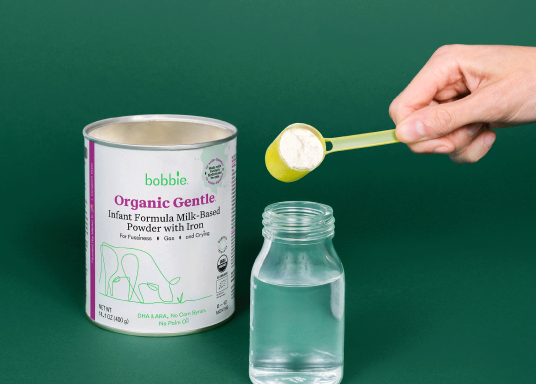Published July 1, 2025

Helpers vs. Visitors: How To Build the Village You Need in Your Newborn Days
By the NAPS experts Emily Silver NP-C, IBCLC and Jamie O’Day, RN, IBCLC
The newborn phase is a whirlwind of emotions, sleepless nights and big adjustments. It’s a magical time when you’re bonding with your baby and stepping into your new role as a parent. But it’s also a time when you need every ounce of support to navigate the challenges that come with this life-changing experience.
As you welcome your little one into the world, the people who come through your door will fall into one of two categories: visitors or helpers. Knowing the difference between the two — and how to set boundaries — can make all the difference in protecting your energy, mental health and sanity during these precious yet exhausting days.
Visitors vs. Helpers: What’s the Difference?
Let’s start with visitors. Visitors are often friends, family members or acquaintances who are excited to meet your new baby. While their enthusiasm is heartwarming, their presence can sometimes feel overwhelming. You might find yourself feeling:
-
A wave of panic about your messy house
-
An urge to tidy up or load the dishwasher
-
Worried you don’t have snacks or drinks to offer
-
Like you need to put on a bra or change clothes
-
Like you can’t feed or pump comfortably while they’re around
-
Anxious or stressed about their arrival
Visitors tend to focus on the baby. They may not realize that what you need most during this time isn’t a houseful of guests but practical and emotional support.
Now, let’s talk about helpers. Helpers show up with the goal of making your life easier. They aren’t here to simply “visit;” they’re here to contribute in meaningful ways. A helper:
-
Brings food or dinner without being asked
-
Loads the dishwasher or folds laundry without hesitation
-
Offers to wash bottles, pump parts or baby clothes
-
Asks if your dog needs to be walked or your plants watered
-
Doesn’t care if your house is messy or you’re wearing pajamas
-
Makes you feel comfortable feeding or pumping while they’re around
Helpers understand that the newborn phase is a time for action, not formalities. They step in where needed, allowing you to focus on bonding with your baby and recovering from childbirth.


Your go-to resource for all things new baby.
Sign up to get the scoop on feeding, sleep, poop, and so much more.
By singing up for email, you are to receive marketing emails from Bobbie and can manage your email preferences or unsubscribe at anytime
You Don’t Have To Do It Alone: The Role of Helpers After Birth
The postpartum period is often described as a fourth trimester — a time when you’re adjusting to life with your newborn while healing physically and emotionally. Helpers are essential because they provide both practical and emotional support. They help lighten your load, reduce stress and create an environment where you can focus on what truly matters: your baby and your recovery.
Helpers are part of your village: a network of people who rally around you during this transformative time. A good helper doesn’t wait to be asked. They anticipate your needs and jump into action, whether that’s folding a pile of laundry or bringing over a home-cooked meal.
Ways To Set Boundaries With Visitors
Visitors, on the other hand, can sometimes feel like an energy drain, especially if they don’t understand your postpartum needs. While it’s important to celebrate the arrival of your baby and share this joy with loved ones, it’s equally important to set boundaries.
If you choose to open your door to visitors, consider setting a time frame. Knowing when the visit starts and ends allows you to feel more prepared and prevents extended stays that might leave you feeling exhausted.
Here’s an example of how to schedule with a visitor: “We’d love to see you and introduce you to the baby! We’re available for visits this Friday from 10 a.m. to noon.” This approach is friendly yet firm. It communicates your availability without leaving room for ambiguity.
Simple Ways To Ask for Everyday Help
Helpers usually have a natural inclination to step in and make things easier for you, but don’t hesitate to guide them toward what you need most. Sometimes, being direct is the best way to ensure you get the support you need.
-
If you want a home-cooked meal, ask them to bring dinner.
-
If you need a break, ask them to hold the baby while you take a shower or nap.
-
If you’re feeling isolated, ask them to accompany you on a short walk or run errands with you.
-
Laundry piling up? See if they can toss in a load or fold a basket while you rest.
-
If the dishes are getting out of hand, a quick ask for help in the kitchen can go a long way.
The key is to remember that helpers want to help — they just need to know how.
How To Build Your Postpartum Village
One of the most impactful ways to prepare for life after birth isn’t just stocking the nursery — it’s creating a circle of support. Your postpartum village is your go-to crew of people who can show up for you physically, emotionally, and even logistically when you need it most.
Here’s how you can line up support ahead of time to help ease your mental load and make the transition smoother for everyone involved:
1. Know Who’s Visiting — and Who’s Really Helping
Not everyone who stops by will be equipped, or even inclined, to help. That’s okay! But it’s helpful to distinguish between your social visitors and your hands-on helpers. Start by jotting down a list of people you trust and feel comfortable leaning on. Think of friends, family, neighbors or even fellow parents in your community who’ve offered to help before — these are your potential village members.
2. Decide What Kind of Help You’ll Need
It’s easier for people to step in when they know exactly what you need. So take a few minutes to think through the practical ways someone could lighten your load. These could include:
-
Cooking or meal delivery
-
Housecleaning or laundry
-
Running errands or grocery shopping
-
Caring for older siblings or pets
3. Share Your Needs Clearly
This part can feel awkward, but it’s often the most important: be specific and honest about what you need. Whether it’s asking a friend to pick up groceries or letting a neighbor know you’d love their homemade lasagna again, direct communication takes the guesswork out of helping.
Most people are more than willing — they just need a little guidance to show up in the way you need most.
Managing Family Visits Without Stress
Family visits can sometimes add a layer of complexity, especially if different family members have varying expectations. It’s not uncommon for grandparents, siblings or other relatives to want extended visits during the newborn phase.
If you’re feeling stressed about family dynamics, take some time to think about what you need and communicate clearly. For example, you might say: “We’d love for you to meet the baby, but we’re keeping visits short for now so we can focus on resting and bonding. Thank you for understanding!” This sets the tone for healthy boundaries while still allowing loved ones to feel included.
Creating a Postpartum Plan
Navigating the newborn phase can feel overwhelming, but having a postpartum plan in place can help you feel more in control. This plan might include:
-
A schedule for visitors, including time limits and preferred days.
-
A list of people you can call on for specific tasks, such as meal prep or babysitting older children.
-
A checklist of your own self-care priorities, like naps, showers or quiet time.
-
A simple daily routine that includes flexible blocks for feeding, resting and bonding.
-
A go-to list of resources in case you need extra support (e.g., lactation consultants, postpartum doulas or mental health professionals).
A postpartum plan can be as detailed or as simple as you like. The goal is to create a roadmap that helps you feel supported and prepared for this unpredictable time.
Practical Tips for New Parents
If you’re navigating the newborn phase and feeling overwhelmed, here are some practical tips to help you protect your energy and find peace:
-
Delegate Tasks: Don’t hesitate to ask for help with household chores, baby care, or meal preparation. Even small tasks like folding laundry or grabbing groceries can free up precious time and mental space.
-
Prioritize Self-Care: Whether it’s a quick shower, a nap, or a few minutes of quiet time, make your own well-being a priority. Taking care of yourself isn’t selfish — it’s essential for showing up as the best version of yourself for your baby.
-
Set Expectations: Be honest with visitors about what you need and what you don’t. A kind but clear message like, “We’re still adjusting and keeping visits short, thanks for understanding,” can go a long way in setting respectful boundaries.
-
Lean on Your Village: Build a network of helpers who can provide consistent support. From text check-ins to rotating meal drops, your village can be a powerful source of strength and reassurance.
-
Focus on Feeding: If you’re breastfeeding or pumping, make sure you have a comfortable setup and don’t shy away from asking for help with cleaning pump parts or bottles. Creating a cozy, well-stocked feeding station can turn feedings into more restful, manageable moments.
FAQ About Visitors and Helpers
How do I politely decline a visit from someone who doesn’t feel like a helper?
It’s perfectly okay to say no. You might say, “We’re keeping things quiet for now as we adjust to life with the baby, but we’ll reach out when we’re ready for visitors.” Most people will understand and appreciate your honesty. Protecting your peace during this time is more important than accommodating every request.
What if a visitor overstays their welcome?
Set boundaries ahead of time by defining visit durations. If someone stays longer than planned, you can say, “It’s been wonderful having you here, but I need to rest now. Thank you for coming!” Framing it with appreciation keeps the tone kind while still making your needs clear.
Can I ask visitors to bring something when they come over?
Absolutely! Many visitors are happy to bring food, diapers or other essentials. A simple request like, “Could you grab some snacks or coffee on your way over?” is often welcomed.
How can I tell if someone is a visitor or a helper?
Pay attention to how their presence makes you feel. If you feel like you need to clean, host or entertain, they’re likely a visitor. If they jump in to help without being asked, they’re a helper. Trust your instincts — your energy is a good indicator of who belongs in your space right now.
How do I build confidence in asking for help?
Practice being direct and remember that asking for help is a sign of strength. Most people are eager to feel helpful — it gives them a purpose and shows them exactly how to support you. Start with small, specific requests and over time, it will feel more natural to speak up for what you need.
Discover Helpful Resources for New Parents
Whether you’re planning ahead with visitors, worried about family dynamics or having trouble deciding if someone is a visitor or a helper, we can help. The Pre Baby Bootcamp from NAPS (Newborn and Parenting Support) offers actionable tips for creating your support system, setting boundaries and feeling confident in your postpartum needs.
Want more ongoing support? Visit Nurture by NAPS for a variety of resources, classes and information on 1:1 consults. From sleep guidance to feeding tips, NAPS is here to support you every step of the way.
Navigate New Parenthood With Confidence and Community
Parenting is one of life’s greatest adventures, but it’s not without its challenges — especially in the newborn phase. By surrounding yourself with helpers, setting boundaries with visitors and leaning on your postpartum village, you can create an environment where you and your baby can thrive.
Remember, asking for help isn’t a sign of weakness; it’s a sign of strength. You’re building a foundation for your family, and that starts with taking care of yourself. You’ve got this, and we’re here to help.
For more tips, insights and resources, visit Bobbie. Together, we’ll help you navigate the newborn phase with confidence and support!
The content on this site is for informational purposes only and not intended to be a substitute for professional medical advice, diagnosis or treatment. Discuss any health or feeding concerns with your infant’s pediatrician. Never disregard professional medical advice or delay it based on the content on this page.








